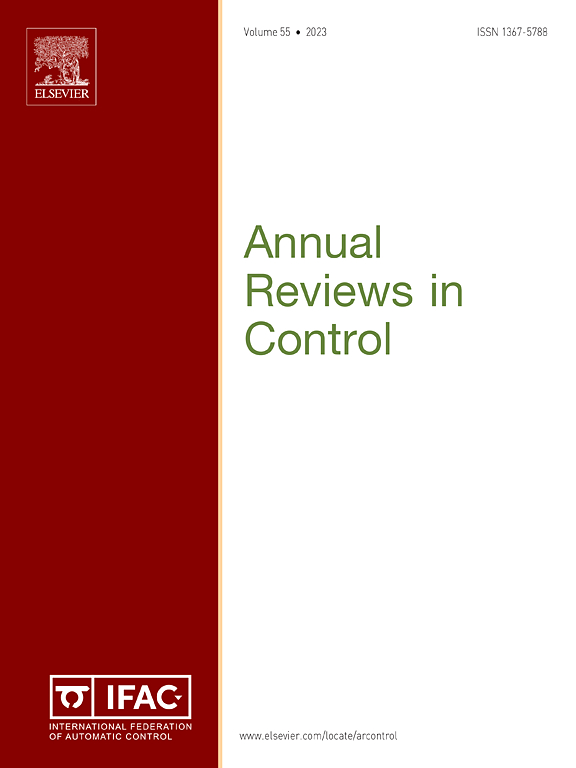Stochastic approximation of hybrid systems: Boundedness and asymptotic behavior
IF 10.7
2区 计算机科学
Q1 AUTOMATION & CONTROL SYSTEMS
引用次数: 0
Abstract
This paper provides a framework for analyzing numerical simulations of a hybrid system when the system’s flow map is approximated stochastically. In this way, the paper makes one of the first substantive connections between hybrid systems theory and the vast literature on stochastic approximations of non-stochastic dynamical systems. The results include conditions for almost sure boundedness and a characterization of the asymptotic behavior of solutions to the stochastic approximation. Namely, under certain conditions on the expected value and variance of the noisy flow map, and with appropriate step sizes, the sample paths of the solutions of the stochastic approximation are shown to have desired boundedness properties and converge to the chain-recurrent part of the global attractor, when one exists, of the underlying hybrid system. The results are established using martingale methods, Morse decompositions of attractors, and Morse–Lyapunov functions. Since the hybrid system’s flow map and its approximation may be set-valued, stochastic approximations of differential inclusions are covered as a special case. Several examples and simulations are provided to illustrate hybrid systems, their stochastic approximations, and their convergence properties.
混合系统的随机逼近:有界性和渐近性
本文提供了一个分析随机近似混合系统流图的数值模拟的框架。通过这种方式,本文首次将混合系统理论与大量关于非随机动力系统随机逼近的文献联系起来。结果包括几乎确定有界性的条件和随机逼近解的渐近行为的表征。即,在噪声流图的期望值和方差的一定条件下,在适当的步长下,随机逼近解的样本路径具有期望的有界性,并收敛于混合系统的全局吸引子的链循环部分(当存在吸引子时)。利用鞅方法、吸引子的Morse分解和Morse - lyapunov函数建立了结果。由于混合系统的流程图及其近似值可以是集值的,因此将微分内含物的随机近似值作为一种特殊情况加以讨论。提供了几个例子和模拟来说明混合系统,它们的随机逼近,以及它们的收敛性。
本文章由计算机程序翻译,如有差异,请以英文原文为准。
求助全文
约1分钟内获得全文
求助全文
来源期刊

Annual Reviews in Control
工程技术-自动化与控制系统
CiteScore
19.00
自引率
2.10%
发文量
53
审稿时长
36 days
期刊介绍:
The field of Control is changing very fast now with technology-driven “societal grand challenges” and with the deployment of new digital technologies. The aim of Annual Reviews in Control is to provide comprehensive and visionary views of the field of Control, by publishing the following types of review articles:
Survey Article: Review papers on main methodologies or technical advances adding considerable technical value to the state of the art. Note that papers which purely rely on mechanistic searches and lack comprehensive analysis providing a clear contribution to the field will be rejected.
Vision Article: Cutting-edge and emerging topics with visionary perspective on the future of the field or how it will bridge multiple disciplines, and
Tutorial research Article: Fundamental guides for future studies.
 求助内容:
求助内容: 应助结果提醒方式:
应助结果提醒方式:


